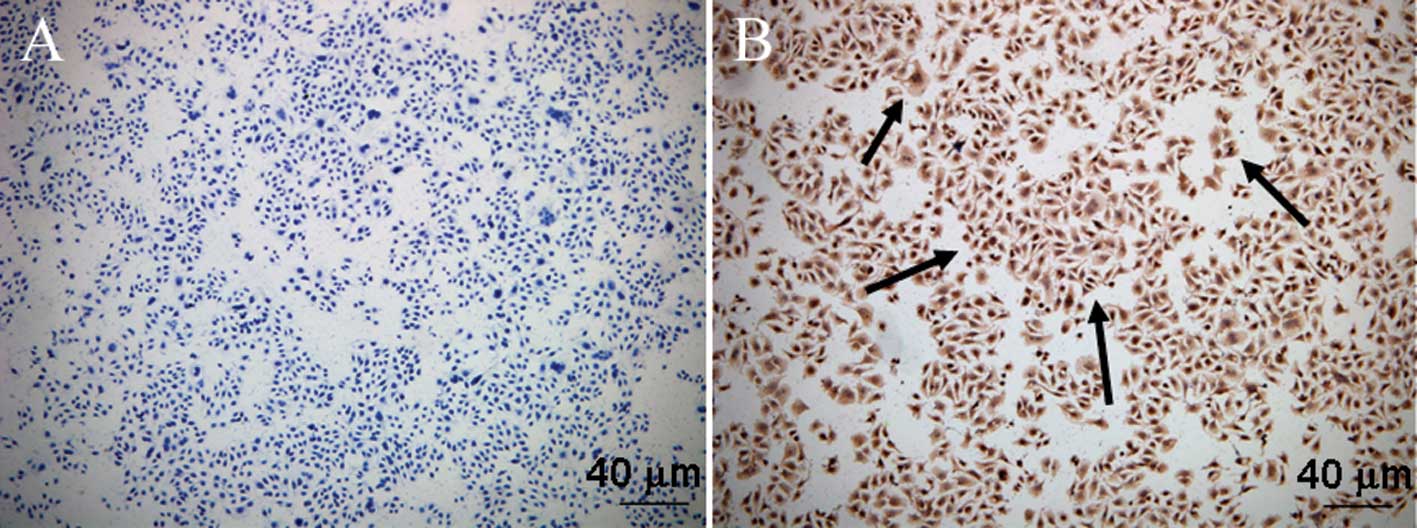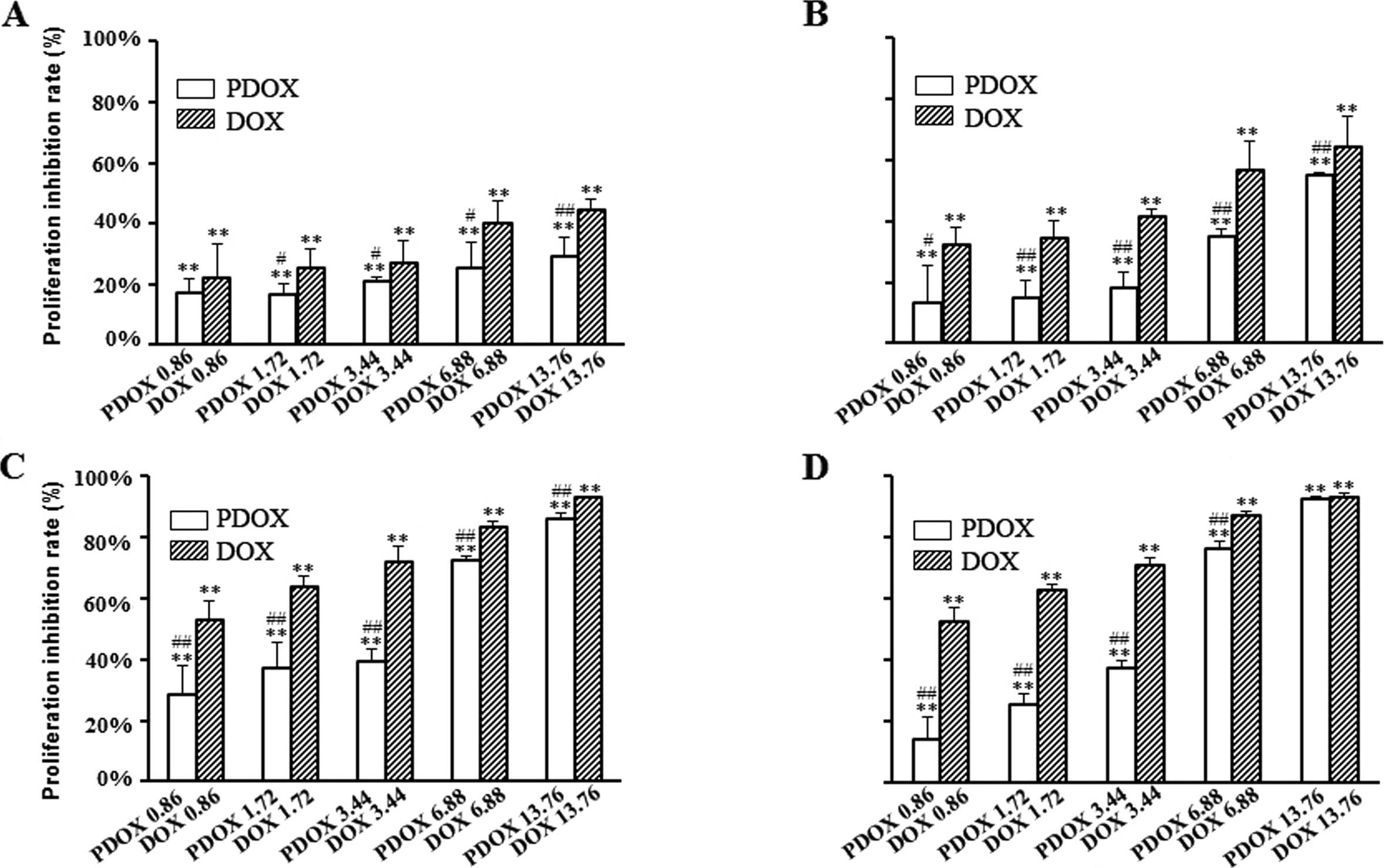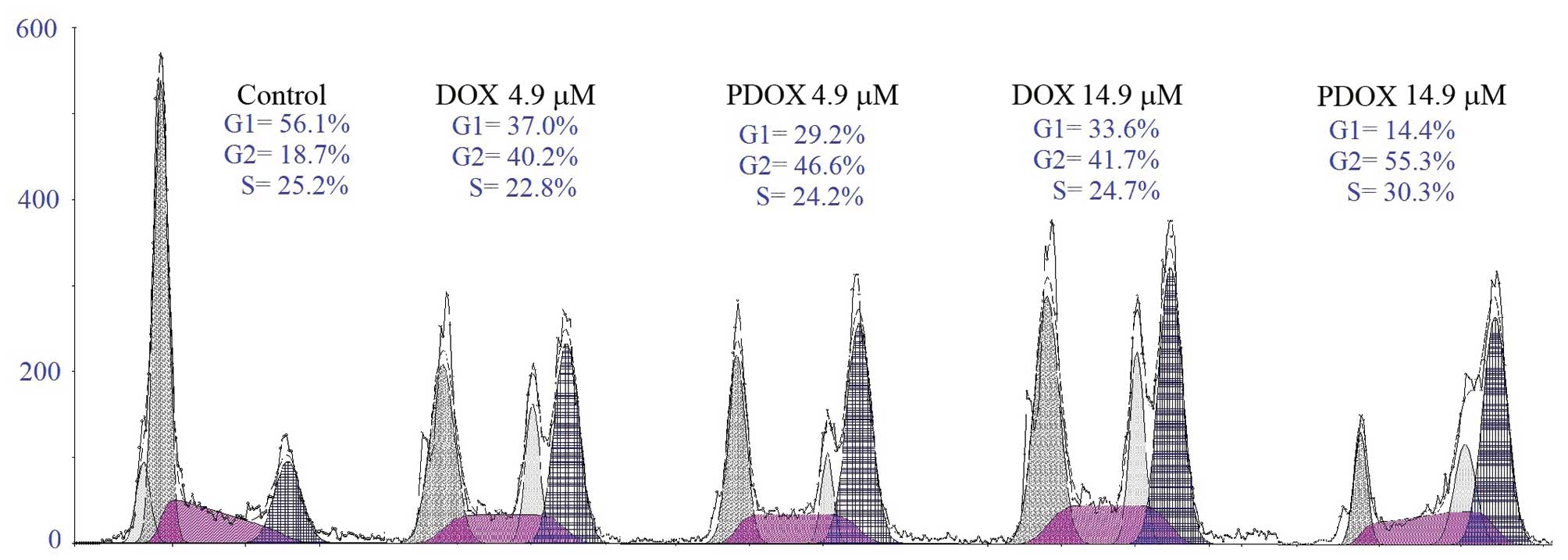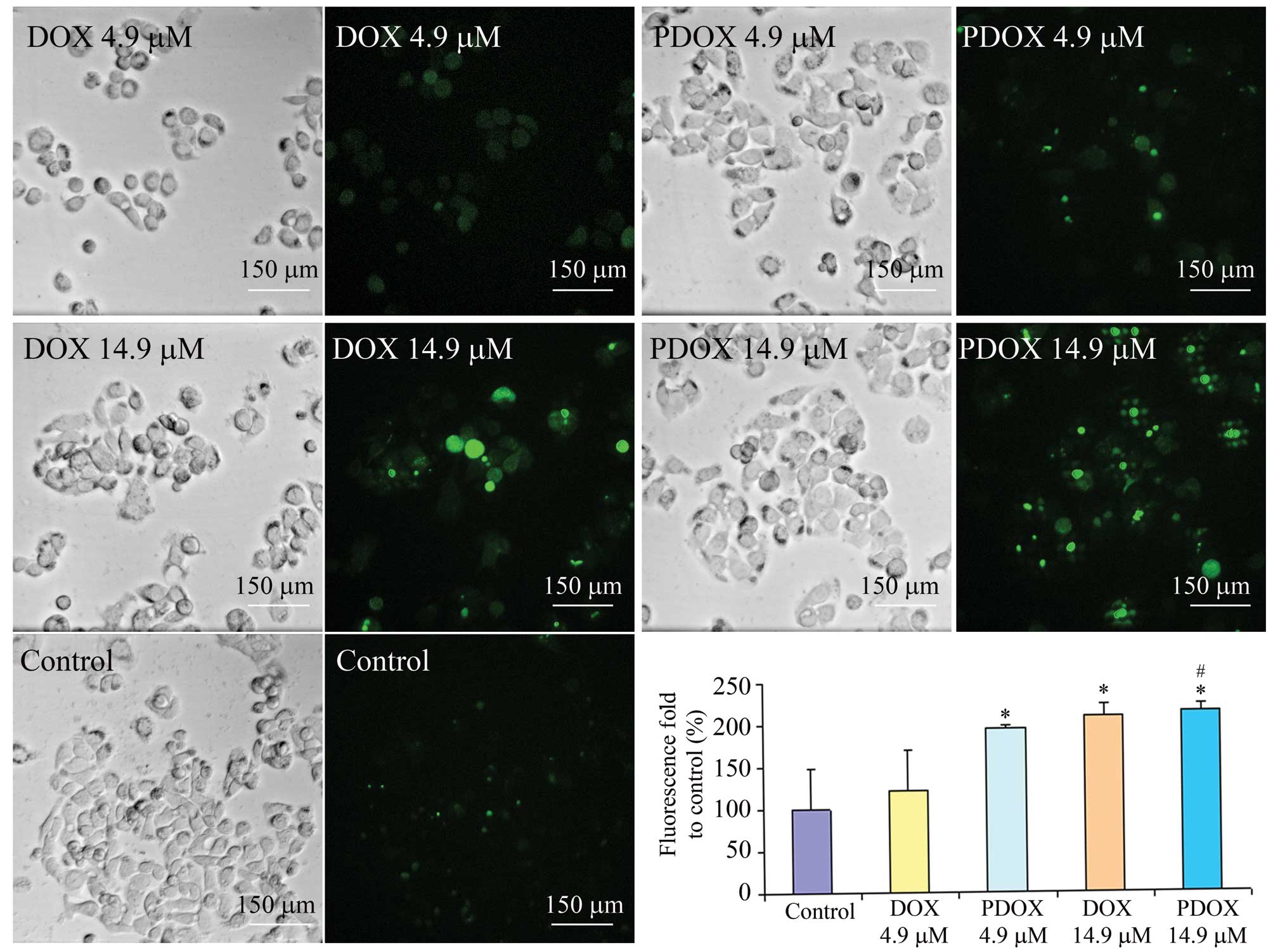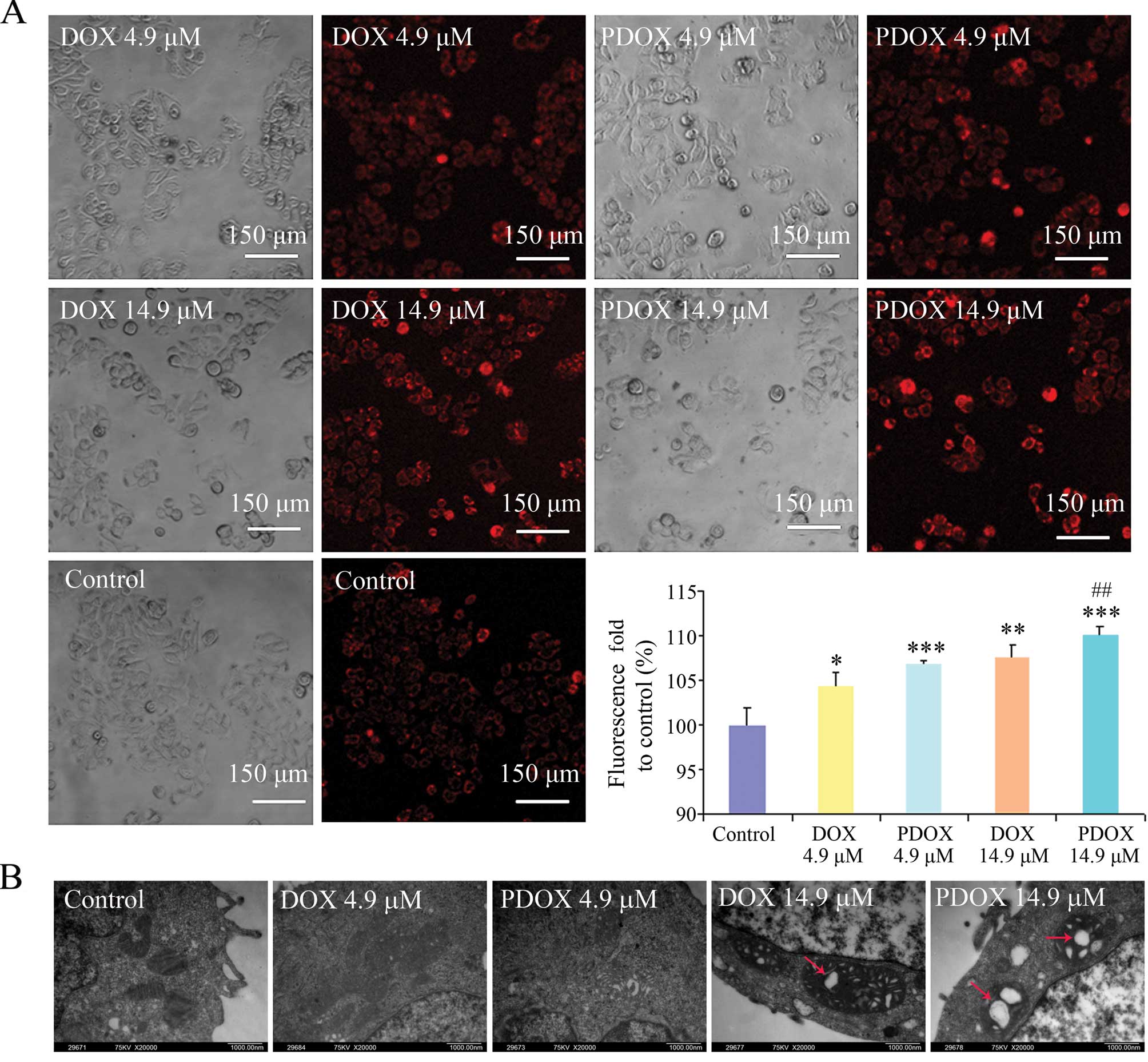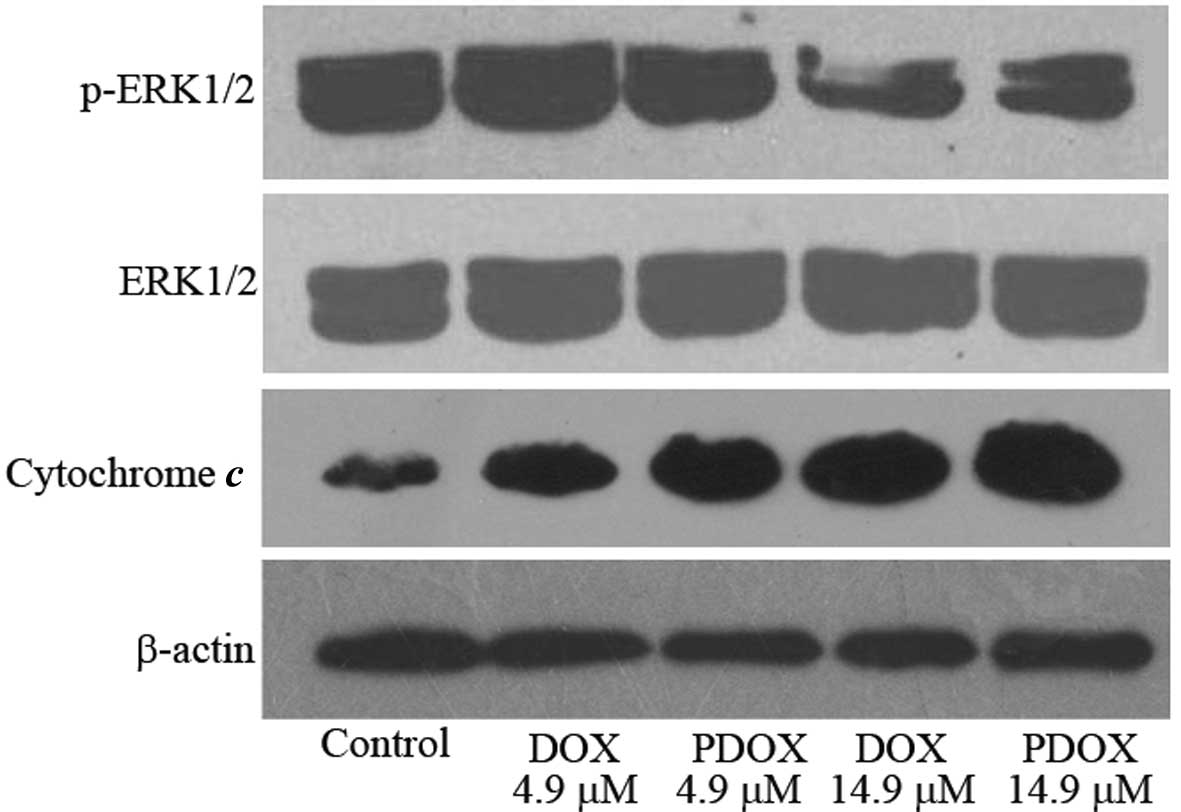|
1
|
Gianni L, Grasselli G, Cresta S, Locatelli
A, Viganò L and Minotti G: Anthracyclines. Cancer Chemother Biol
Response Modif. 21:29–40. 2003. View Article : Google Scholar
|
|
2
|
Abu Ajaj K, Graeser R, Fichtner I and
Kratz F: In vitro and in vivo study of an albumin-binding prodrug
of doxorubicin that is cleaved by cathepsin B. Cancer Chemother
Pharmacol. 64:413–418. 2009.PubMed/NCBI
|
|
3
|
Kratz F, Warnecke A, Schmid B, Chung DE
and Gitzel M: Prodrugs of anthracyclines in cancer chemotherapy.
Curr Med Chem. 13:477–523. 2006. View Article : Google Scholar : PubMed/NCBI
|
|
4
|
Seymour LW, Ferry DR, Kerr DJ, Rea D,
Whitlock M, Poyner R, et al: Phase II studies of
polymer-doxorubicin (PK1, FCE28068) in the treatment of breast,
lung and colorectal cancer. Int J Oncol. 34:1629–1636. 2009.
View Article : Google Scholar : PubMed/NCBI
|
|
5
|
Seymour LW, Ferry DR, Anderson D,
Hesslewood S, Julyan PJ, Poyner R, et al: Hepatic drug targeting:
Phase I evaluation of polymer-bound doxorubicin. J Clin Oncol.
20:1668–1676. 2002. View Article : Google Scholar : PubMed/NCBI
|
|
6
|
Podgorski I and Sloane BF: Cathepsin B and
its role(s) in cancer progression. Biochem Soc Symp. 70:263–276.
2003.PubMed/NCBI
|
|
7
|
Calderón M, Graeser R, Kratz F and Haag R:
Development of enzymatically cleavable prodrugs derived from
dendritic polyglycerol. Bioorg Med Chem Lett. 19:3725–3728.
2009.PubMed/NCBI
|
|
8
|
Kovár M, Strohalm J, Etrych T, Ulbrich K
and Ríhová B: Star structure of antibody-targeted HPMA
copolymer-bound doxorubicin: a novel type of polymeric conjugate
for targeted drug delivery with potent antitumor effect. Bioconjug
Chem. 13:206–215. 2002.PubMed/NCBI
|
|
9
|
Thanou M and Duncan R: Polymer-protein and
polymer-drug conjugates in cancer therapy. Curr Opin Investig
Drugs. 4:701–709. 2003.PubMed/NCBI
|
|
10
|
Mai J, Waisman DM and Sloane BF: Cell
surface complex of cathepsin B/annexin II tetramer in malignant
progression. Biochim Biophys Acta. 1477:215–230. 2000. View Article : Google Scholar : PubMed/NCBI
|
|
11
|
Kratz F, Müller IA, Ryppa C and Warnecke
A: Prodrug strategies in anticancer chemotherapy. Chem Med Chem.
3:20–53. 2008. View Article : Google Scholar : PubMed/NCBI
|
|
12
|
Vasey PA, Kaye SB, Morrison R, Twelves C,
Wilson P, Duncan R, et al: Phase I clinical and pharmacokinetic
study of PK1 (N-(2-hydroxypropyl)methacrylamide copolymer
doxorubicin): first member of a new class of chemotherapeutic
agents-drug-polymer conjugates. Cancer Research Campaign Phase I/II
Committee. Clin Cancer Res. 5:83–94. 1999.
|
|
13
|
Dubowchik GM and Firestone RA: Cathepsin
B-sensitive dipeptide prodrugs. 1. A model study of structural
requirements for efficient release of doxorubicin. Bioorg Med Chem
Lett. 8:3341–3346. 1998. View Article : Google Scholar : PubMed/NCBI
|
|
14
|
Dubowchik GM, Firestone RA, Padilla L,
Willner D, Hofstead SJ, Mosure K, et al: Cathepsin B-labile
dipeptide linkers for lysosomal release of doxorubicin from
internalizing immunoconjugates: model studies of enzymatic drug
release and antigen-specific in vitro anticancer activity.
Bioconjug Chem. 13:855–869. 2002. View Article : Google Scholar
|
|
15
|
Dubowchik GM, Mosure K, Knipe JO and
Firestone RA: Cathepsin B-sensitive dipeptide prodrugs. 2. Models
of anticancer drugs paclitaxel (Taxol), mitomycin C and
doxorubicin. Bioorg Med Chem Lett. 8:3347–3352. 1998. View Article : Google Scholar : PubMed/NCBI
|
|
16
|
Shao LH, Liu SP, Hou JX, Zhang YH, Peng
CW, Zhong YJ, et al: Cathepsin B cleavable novel prodrug
Ac-Phe-Lys-PABC-ADM enhances efficacy at reduced toxicity in
treating gastric cancer peritoneal carcinomatosis: an experimental
study. Cancer. 118:2986–2996. 2012. View Article : Google Scholar
|
|
17
|
Liu LL, Li QX, Xia L, Li J and Shao L:
Differential effects of dihydropyridine calcium antagonists on
doxorubicin-induced nephrotoxicity in rats. Toxicology. 231:81–90.
2007. View Article : Google Scholar : PubMed/NCBI
|
|
18
|
Hancock JT, Desikan R and Neill SJ: Role
of reactive oxygen species in cell signalling pathways. Biochem Soc
Trans. 29:345–350. 2001. View Article : Google Scholar : PubMed/NCBI
|
|
19
|
Fruehauf JP and Meyskens FL Jr: Reactive
oxygen species: a breath of life or death? Clin Cancer Res.
13:789–794. 2007. View Article : Google Scholar : PubMed/NCBI
|
|
20
|
Korsmeyer SJ, Yin XM, Oltvai ZN,
Veis-Novack DJ and Linette GP: Reactive oxygen species and the
regulation of cell death by the Bcl-2 gene family. Biochim Biophys
Acta. 1271:63–66. 1995. View Article : Google Scholar : PubMed/NCBI
|
|
21
|
Gupta S: Molecular signaling in death
receptor and mitochondrial pathways of apoptosis (Review). Int J
Oncol. 22:15–20. 2003.PubMed/NCBI
|
|
22
|
Tsang WP, Chau SP, Kong SK, Fung KP and
Kwok TT: Reactive oxygen species mediate doxorubicin induced
p53-independent apoptosis. Life Sci. 73:2047–2058. 2003. View Article : Google Scholar : PubMed/NCBI
|
|
23
|
Wang S, Konorev EA, Kotamraju S, Joseph J,
Kalivendi S and Kalyanaraman B: Doxorubicin induces apoptosis in
normal and tumor cells via distinctly different mechanisms.
intermediacy of H(2)O(2)- and p53-dependent pathways. J Biol Chem.
279:25535–25543. 2004. View Article : Google Scholar : PubMed/NCBI
|
|
24
|
Moungjaroen J, Nimmannit U, Callery PS,
Wang L, Azad N, Lipipun V, et al: Reactive oxygen species mediate
caspase activation and apoptosis induced by lipoic acid in human
lung epithelial cancer cells through Bcl-2 down-regulation. J
Pharmacol Exp Ther. 319:1062–1069. 2006. View Article : Google Scholar
|
|
25
|
Peng CW, Liu XL, Chen C, Liu X, Yang XQ,
Pang DW, et al: Patterns of cancer invasion revealed by QDs-based
quantitative multiplexed imaging of tumor microenvironment.
Biomaterials. 32:2907–2917. 2011. View Article : Google Scholar : PubMed/NCBI
|
|
26
|
Shinomol GK and Muralidhara: Effect of
Centella asiatica leaf powder on oxidative markers in brain
regions of prepubertal mice in vivo and its in vitro efficacy to
ameliorate 3-NPA-induced oxidative stress in mitochondria.
Phytomedicine. 15:971–984. 2008.
|
|
27
|
Kovár L, Strohalm J, Chytil P, Mrkvan T,
Kovár M, Hovorka O, et al: The same drug but a different mechanism
of action: comparison of free doxorubicin with two different
N-(2-hydroxypropyl)methacrylamide copolymer-bound doxorubicin
conjugates in EL-4 cancer cell line. Bioconjug Chem. 18:894–902.
2007.
|















